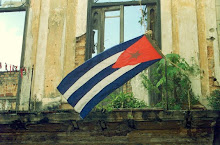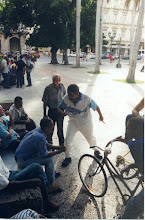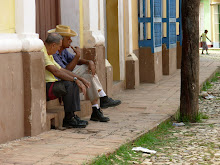Hugo Chavez had a pretty good run, governing Venezuela since 1999, winning four elections, and having lots of time to put in place and to develop his brand of socialism.
He made quite a mark.
At a time when the hemisphere, acting through the OAS, had joined
together in a commitment to reject coups d’etat and similar usurpations of
democracy, he governed by winning elections and then eroding elements of
Venezuela’s democracy, never quite touching a tripwire that would bring an
international response. He benefited
from opposition parties that had excluded Venezuela’s poor during their decades
in power, and that never found unity or balance in opposition.
Chavez cared about the poor and had an odd way of
showing it. He put social programs in
place – health, education, income assistance – and at the same time implemented
policies that have gone a long way toward wrecking the economy in which poor
Venezuelans and all others live. He
drove away foreign investment, eroded property rights, imposed foreign exchange
controls that distort the entire economy and lead to corruption, and created
food shortages. To the latter, his
government has responded for years with absurd charges that food producers are
hoarding and speculating, as if farmers and distributors go into business for
the purpose of keeping their products in warehouses.
All this, in an economy that is more than capable of
maintaining both a strong private sector and a large financial commitment to
fighting poverty. Venezuela’s oil wealth
gave him the wherewithal to set an example for both left and right, but Chavez’
ideology led elsewhere.
Fidel Castro once dreamed of armed revolution throughout
Latin America, where the Andes would become the continent’s Sierra
Maestra. Chavez surely delighted him,
along with the advent of like-minded leaders in Bolivia and Ecuador.
For Cuba, the risk in Chavez’ passing is that the
economic relationship with Venezuela may change or end, raising the cost of Cuba’s
energy supplies and damaging the entire economy. Chavez’ socialist party, having won the
presidency last October and 20 of 23 state governorships last December, has to
be counted as a favorite in Venezuela’s 30-day snap election scenario. If the socialists win, the Bolivarian project
would seem safe, including its international aspects. If the opposition wins, the relationship with
Cuba would likely be scaled back and new prices would be attached to the
doctors-for-oil swap that so benefits Cuba today.
The bottom line is that post-Chavez politics is new in
Venezuela, and that brings a note of uncertainty for Cuba, the last thing el comandante Chavez would have wanted
to leave behind. R.I.P.





No comments:
Post a Comment